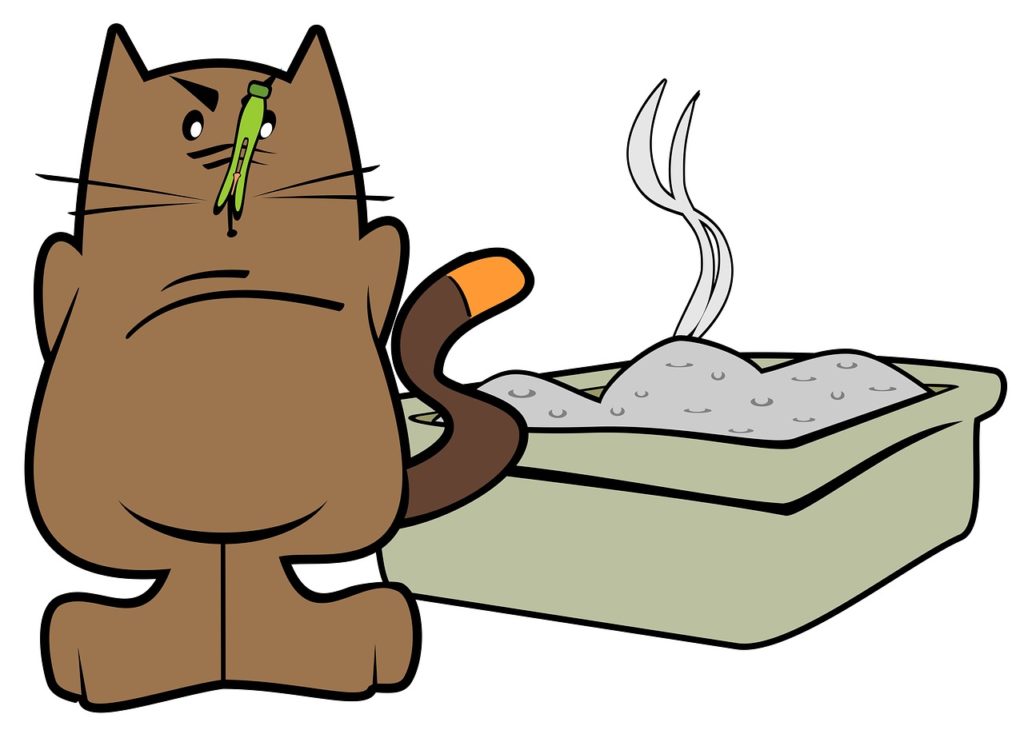Does your cat experience frequent constipation? Are your cat’s stools small, hard, and dry? Does your cat strain to defecate or return frequently to the box to try and defecate?
These signs are consistent with constipation and also with a disease called Megacolon, in which the large intestine becomes enlarged and filed with hard fecal matter. See your veterinarian if your cat displays these signs.
Causes of Megacolon in Cats
Megacolon can have multiple causes, including narrowing of the pelvic area (due to a pelvic fracture), nerve injury, or spinal cord deformities. Rarer causes include cancer and inflammation. In nearly two-thirds of all cases, the condition is termed “Idiopathic Megacolon” because the cause cannot be found. However, it is thought to be due to an abnormality in the smooth muscle of the large intestine.
Symptoms of Megacolon in Cats
Symptoms of Megacolon vary on the severity of the condition. Usually, the cat’s stool is very small or missing. Usually the stool will be hard and dry
The cat may struggle to defecate, and stand over the litter box for extended periods of time, or return to the litter box to try to defecate. The cat may poop outside or around the litter box. Severe straining may cause your cat to poop out mucus or blood. Occasionally a cat will develop diarrhea because the feces are inflaming the intestine. Your cat may experience vomiting, even while he is straining to pass stool. As the condition becomes more severe, the cat may lose its appetite or experience weight loss. Eventually, the cat may become lethargic and dehydrated.
Treatment of Constipation and Megacolon in Cats
A cat that is diagnosed with idiopathic Megacolon will be administered IV’s to increase hydration. Next, a veterinarian will put your cat under and perform an enema. The veterinarian may also perform a deobstipation (which is when the vet removes the feces from the cats stomach). Usually, after the procedure, the veterinarian will prescribe a low-residue diet and medications including Lactulose and Cisapride. Some cats diagnosed with Megacolon do not recover adequately and may require surgery to remove part of the colon (this is called a subtotal colectomy). In general, the prognosis is favorable, although some cats may experience diarrhea for weeks to months after the surgery.
If you suspect your cat has Megacolon, reach out to your veterinarian for proper diagnosis and treatment.

